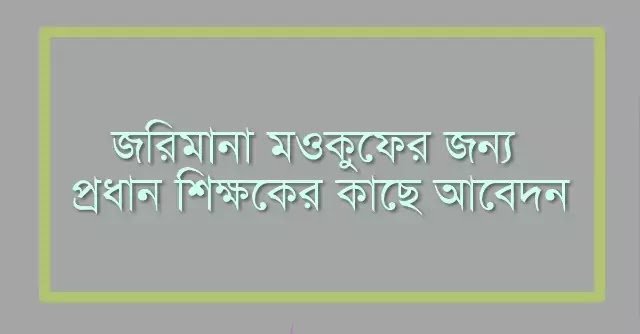As the education system continues to adapt to the evolving challenges, Bangladesh has introduced a short syllabus for the Secondary School Certificate (SSC) exam for the year 2025. The condensed syllabus is designed to provide students with a more focused learning path, ensuring they are prepared for the SSC exam without being overwhelmed by the full curriculum. In this post, we’ll delve into the key highlights of the SSC short syllabus for 2025, particularly for the Science group, and what students should keep in mind while preparing.
Why a Short Syllabus?
The decision to shorten the syllabus stems from a need to streamline education in light of the disruptions caused by the COVID-19 pandemic, which led to reduced class time and shifted learning to online platforms. The condensed syllabus aims to:
- Ensure academic efficiency: With reduced content, students can focus on key concepts that are most important for their academic progress.
- Minimize stress: Students will not be burdened with a vast amount of content, allowing them to prepare effectively within a shorter time frame.
- Target essential learning outcomes: The short syllabus zeroes in on critical learning objectives, helping students to grasp the core knowledge needed for higher education.
Key Changes in the SSC Science Group Syllabus
The SSC Science Group consists of several important subjects, including Physics, Chemistry, Biology, Higher Mathematics, and ICT. Here’s a breakdown of the changes in each subject under the 2025 short syllabus:
1. Physics
Physics is a foundational subject for students in the Science group, and the short syllabus has trimmed down some of the detailed theoretical topics while maintaining core areas:
- Chapters included: The focus is on core concepts such as motion, force, work, energy, and electricity.
- Exclusions: Certain sections on advanced optics, nuclear physics, and detailed theoretical derivations have been removed or simplified.
- Key focus areas: Emphasis on problem-solving in mechanics and basic electricity, with selected portions on heat and thermodynamics.
2. Chemistry
Chemistry is often viewed as one of the more challenging subjects, but with the short syllabus, students can focus more effectively:
- Chapters included: Atomic structure, chemical bonding, states of matter, and periodic table basics remain essential.
- Exclusions: Detailed organic chemistry and in-depth analysis of chemical reactions have been minimized.
- Key focus areas: Students should focus on practical chemistry, acid-base reactions, and basic chemical calculations.
3. Biology
Biology remains crucial for students interested in pursuing medicine or life sciences. The short syllabus retains core biological processes while streamlining the content.
- Chapters included: Cell structure, reproduction, genetics, and basic human physiology are retained.
- Exclusions: Advanced topics in plant biology and certain ecological concepts have been trimmed.
- Key focus areas: Focus on human biology, cellular processes, and inheritance patterns will help students excel in this subject.
4. Higher Mathematics
For students aiming to pursue engineering or other technical fields, Higher Mathematics is essential. The short syllabus has been modified to:
- Chapters included: Core topics such as algebra, trigonometry, and calculus are still in focus.
- Exclusions: Some of the advanced geometrical theorems and complex numbers have been simplified or excluded.
- Key focus areas: Algebraic identities, differential and integral calculus basics, and key trigonometric functions are the main areas to concentrate on.
5. ICT (Information and Communication Technology)
Given the digital transformation of education and the world, ICT remains an important subject for SSC students.
- Chapters included: Core areas such as basic programming, data management, and internet security are part of the syllabus.
- Exclusions: Some sections on advanced computer networking and in-depth software development are minimized.
- Key focus areas: Students should focus on understanding basic programming concepts, data processing, and cybersecurity fundamentals.
Preparation Tips for Students
With the reduced syllabus, students should be strategic in their study plans to ensure they cover all essential areas. Here are a few tips to help you make the most of the short syllabus:
Understand the syllabus thoroughly: Go through the short syllabus and identify the chapters and sections that have been included or excluded.
Focus on conceptual clarity: Since the syllabus focuses on core topics, it’s essential to have a strong grasp of the fundamental concepts. Avoid rote memorization and aim for understanding.
Practice regularly: For subjects like Mathematics, Physics, and Chemistry, practice is key. Solve as many problems as you can from the included chapters to strengthen your problem-solving skills.
Use past papers: Review previous years’ exam papers to get a feel for the question patterns and frequently asked topics. This will give you an edge in the exam.
Stay updated with new resources: Keep an eye on educational platforms and school notifications for any updates or additional resources related to the short syllabus.
Final Thoughts
The SSC short syllabus for 2025 offers an opportunity for students in the Science group to focus on the most important topics without getting bogged down by the entire curriculum. By concentrating on key concepts, practicing consistently, and using this condensed syllabus as a roadmap, students can maximize their chances of success in the upcoming SSC exam.






